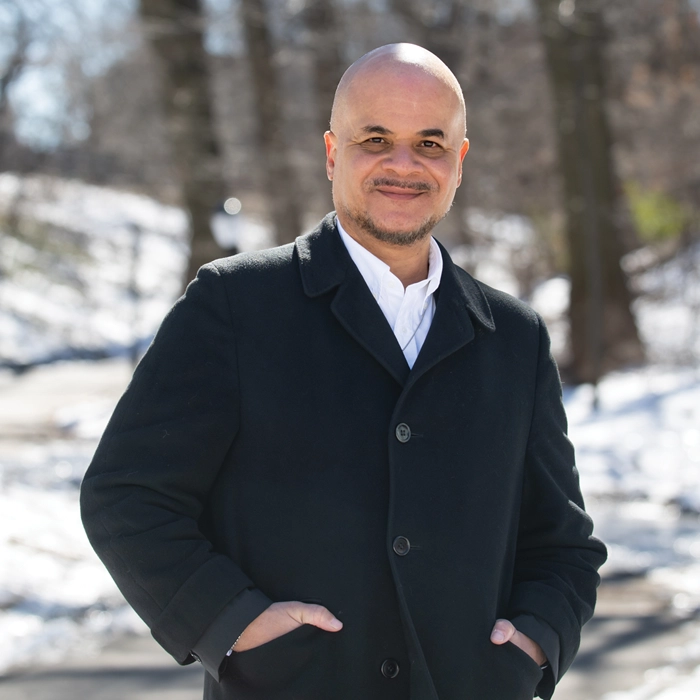Giving What Feels Good
CMU alumnus Richard Glave is maximizing his support for Tartans with a tax-smart gift of retirement funds
By Amanda S.F. Hartle
After graduating from Carnegie Mellon University and starting his first job, Dietrich College of Humanities and Social Sciences alumnus Richard Glave’s father encouraged him to set up a retirement account.
“My father, Harold Glave, was a big saver and investor,” Richard says. “He was very big on retirement plans and pensions and all of that. He managed retirement plans for companies at Bankers Trust, now part of Deutsche Bank, for around 25 years.”
When Richard’s father, who emigrated from Jamaica to New York City with Richard’s mother, Daphne Depass Glave, before Richard was born, learned he was depositing his earnings in a low-yield savings account, his father stepped in.
“He got me to invest my first $2,000 in an IRA with a targeted retirement fund,” says Richard who graduated in 1989 with a degree in information and decision systems. “That’s what got me into saving and investing.”
“My father, Harold Glave, was a big saver and investor. He was very big on retirement plans and pensions and all of that. He managed retirement plans for companies at Bankers Trust, now part of Deutsche Bank, for around 25 years.”
His father’s forethought and a diligent dedication to stashing funds for a post-career life have allowed Richard to create a legacy at Carnegie Mellon University with a planned gift intention through his retirement plan.
By naming CMU as a beneficiary on his retirement plan, Richard can select and change the percentage he wishes the university to ultimately receive. He also will continue to receive regular lifetime withdrawals, too.
His support will elevate and enhance the Tartan experience for under-resourced students in Dietrich College’s Information Systems program, who are native New Yorkers like himself.
“I didn’t feel like it back then, but in retrospect, maybe I was an under-resourced student,” Richard says. “I was definitely different from 96% of the other students. I received some grants and loans, and my parents made up the difference, but I don’t know how they did it. I just know that I want other under-resourced people from New York City to have the same opportunity that I had.”
That opportunity prepared him for a successful career in information systems, which has taken him from multinational companies like Fiserv and Home Depot to public sector roles at New York City’s Department of Education and Department of Buildings, where he also contributes to a pension plan in addition to his other retirement funds.
He leaned into data modeling at Home Depot and left with enhanced data architect skills. At the Department of Education starting in 2011, he brought together disparate data systems that detailed staff, students, grading, attendance, course catalogs and more into an integrated data warehouse.
“There’s no regrets or second thoughts about it. I’m giving what feels good to me. That’s an important aspect of the giving experience for me.”
“Being a data architect is just like being a regular architect,” Richard says. “You create these designs, and someone else comes in and builds the building.”
He found he wanted more control of his designs, so he moved to the Department of Buildings where as the executive director, IT infrastructure support and security, he oversees the department’s network infrastructure, help desk, cybersecurity and data engineering groups among others.
Every day, he employs aspects of his CMU education.
“Many of my classes required really critical thinking, and the ability to communicate complex ideas in writing,” Richard says. “I’m able to come from a place where I understand the technology, and I know how to communicate the ideas to the right people. My education in IS (information systems) at Carnegie Mellon is and continues to be really fundamental to my success.”
And his advice to other Tartans thinking about if and when they should give back: give what feels good.
“There’s no regrets or second thoughts about it,” Richard says. “I’m giving what feels good to me. That’s an important aspect of the giving experience for me.”
